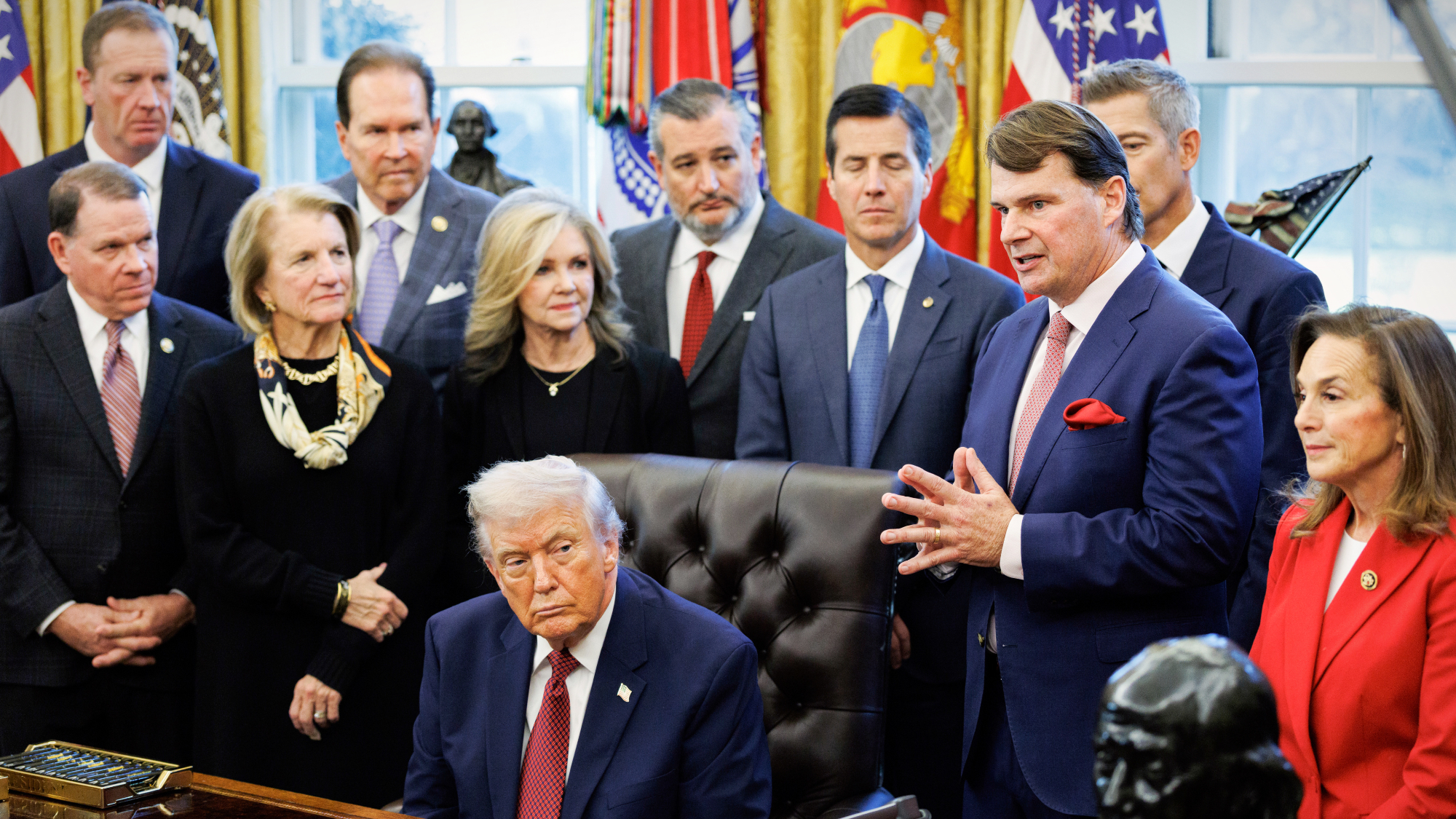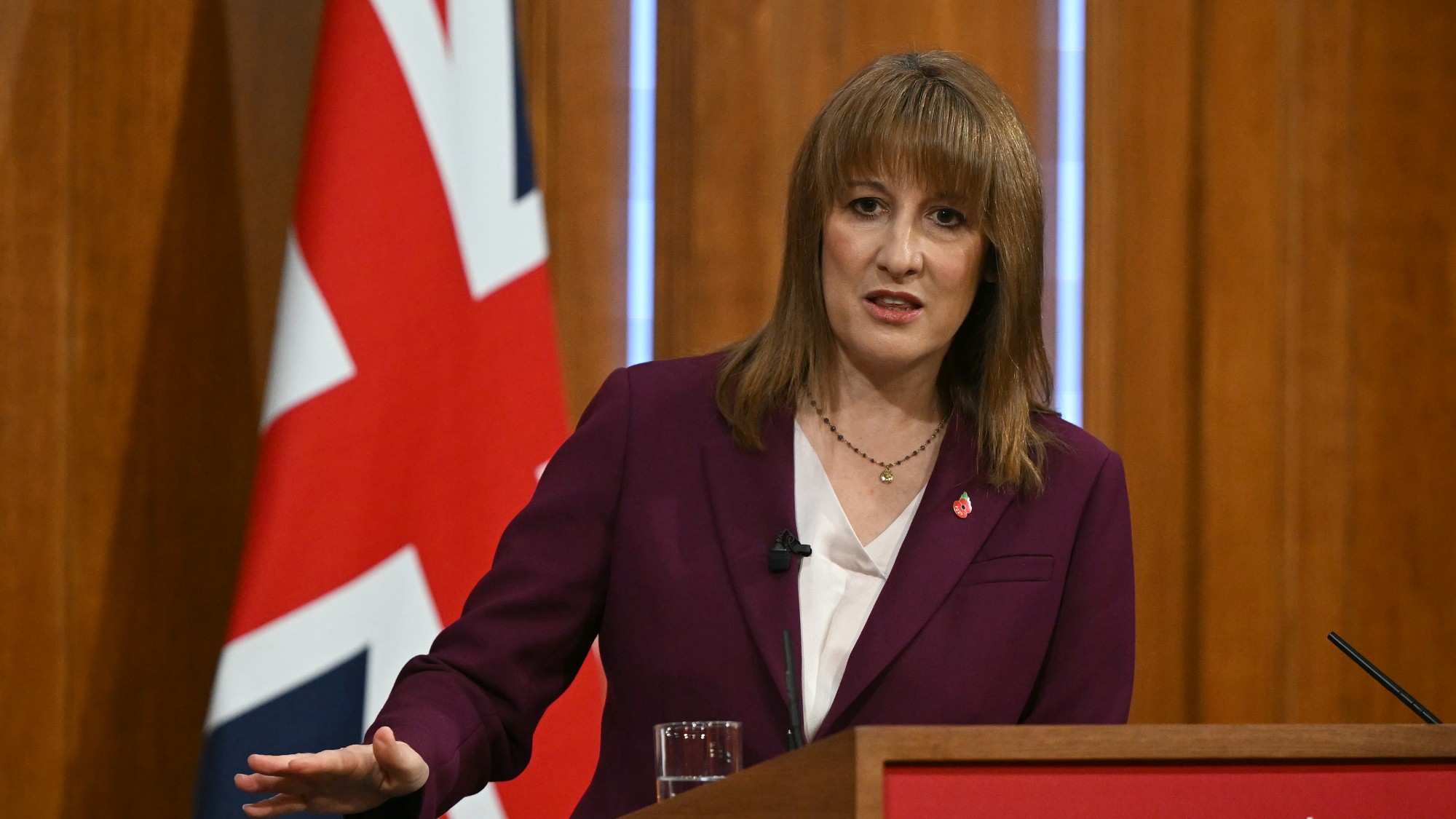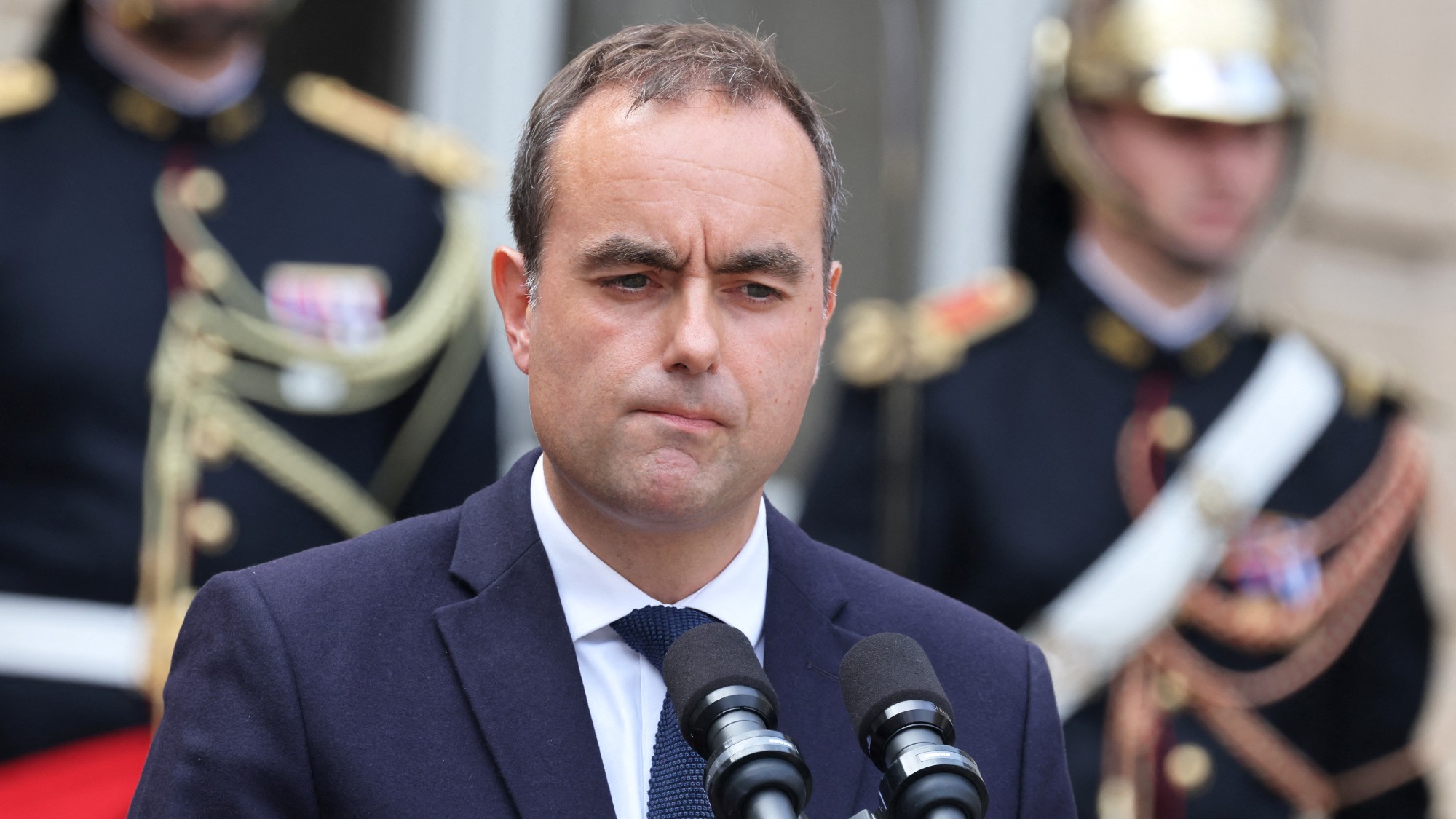How electric cars will leave road tax ‘black hole’
MPs warn that electric cars could deprive government of £35bn of revenue

A free daily email with the biggest news stories of the day – and the best features from TheWeek.com
You are now subscribed
Your newsletter sign-up was successful
A group of MPs has said the UK needs to introduce new motoring taxes for electric cars to avoid slipping towards “zero revenue” by 2040.
The sale of new petrol and diesel cars and vans will be banned in the UK in eight years’ time, in a move designed to boost the electric vehicle market. But the transport select committee warned today that “policies to deliver net zero emissions by 2050 are likely to result in zero revenue for the government from motoring taxation by 2040”.
Electric cars are exempt from road tax and their drivers do not have to pay fuel duty either. Combined, those two levies “raise around £35bn a year”, said the BBC.
The Week
Escape your echo chamber. Get the facts behind the news, plus analysis from multiple perspectives.

Sign up for The Week's Free Newsletters
From our morning news briefing to a weekly Good News Newsletter, get the best of The Week delivered directly to your inbox.
From our morning news briefing to a weekly Good News Newsletter, get the best of The Week delivered directly to your inbox.
Unless the government acts to “reform motoring taxation” and plug the gap, the UK “faces an under-resourced and congested future”, the MPs said.
With vehicle excise duty currently bankrolling road repair, the report recommended an approach of “road pricing”, which would charge drivers per trip, based on the distance travelled, duration of the journey and vehicle type, said the Daily Mail.
Last week, The Guardian said road pricing could offer “a fairer, sustainable way to make polluting drivers pay, ease congestion and fund better transport” but “few politicians in power have ever wanted to take the flak that would come with introducing it”.
Singapore has had a road-pricing scheme for more than 20 years, in which motorists are billed automatically for journeys measured when they pass a series of gantries.
A free daily email with the biggest news stories of the day – and the best features from TheWeek.com
Past proposals to introduce such a scheme in the UK have tended to meet with public disapproval. MPs have now suggested that the Treasury and the Department for Transport need to embark on an “honest conversation” about how to maintain investment in roads and public services as the UK moves towards vehicles that do not pay towards these two motoring levies, said The Independent.
The impact of the lost revenue could spread beyond roads. Huw Merriman, the Conservative chair of the transport select committee, said the expected £35bn black hole in finances is “4% of the entire tax take” and as only £7bn of this goes back to the roads. As a result “schools and hospitals could be impacted”.
Steve Gooding from the RAC Foundation agreed that the rise of electric cars sets up a major dilemma for public finances, saying that the “silver-lining of zero-carbon motoring comes wrapped in a cloud of trouble for the chancellor”.
As a way to dispel that cloud, MPs have urged ministers to set up an arm’s-length body to recommend a new regime by the end of 2022.
With data from the Society of Motor Manufacturers and Traders showing that plug-in vehicles accounted for more than one in six new cars registered in the UK last year, the MPs said “the situation is urgent” and “work must begin without delay”.
A government spokesman said ministers were committed to keeping the transition to electric cars “affordable for consumers”.
-
 Is Andrew’s arrest the end for the monarchy?
Is Andrew’s arrest the end for the monarchy?Today's Big Question The King has distanced the Royal Family from his disgraced brother but a ‘fit of revolutionary disgust’ could still wipe them out
-
 Quiz of The Week: 14 – 20 February
Quiz of The Week: 14 – 20 FebruaryQuiz Have you been paying attention to The Week’s news?
-
 The Week Unwrapped: Do the Freemasons have too much sway in the police force?
The Week Unwrapped: Do the Freemasons have too much sway in the police force?Podcast Plus, what does the growing popularity of prediction markets mean for the future? And why are UK film and TV workers struggling?
-
 How corrupt is the UK?
How corrupt is the UK?The Explainer Decline in standards ‘risks becoming a defining feature of our political culture’ as Britain falls to lowest ever score on global index
-
 The high street: Britain’s next political battleground?
The high street: Britain’s next political battleground?In the Spotlight Mass closure of shops and influx of organised crime are fuelling voter anger, and offer an opening for Reform UK
-
 Trump boosts gas cars in fuel economy rollback
Trump boosts gas cars in fuel economy rollbackspeed read Watering down fuel efficiency standards is another blow to former President Biden’s effort to boost electric vehicles
-
 Is a Reform-Tory pact becoming more likely?
Is a Reform-Tory pact becoming more likely?Today’s Big Question Nigel Farage’s party is ahead in the polls but still falls well short of a Commons majority, while Conservatives are still losing MPs to Reform
-
 Will Rachel Reeves’ tax U-turn be disastrous?
Will Rachel Reeves’ tax U-turn be disastrous?Today’s Big Question The chancellor scraps income tax rises for a ‘smorgasbord’ of smaller revenue-raising options
-
 ‘Not every social scourge is an act of war’
‘Not every social scourge is an act of war’Instant Opinion Opinion, comment and editorials of the day
-
 Taking the low road: why the SNP is still standing strong
Taking the low road: why the SNP is still standing strongTalking Point Party is on track for a fifth consecutive victory in May’s Holyrood election, despite controversies and plummeting support
-
 Will billionaires kill France’s proposed wealth tax?
Will billionaires kill France’s proposed wealth tax?Today's Big Question In Paris, a preview of the debate over Zohran Mamdani’s NYC proposal